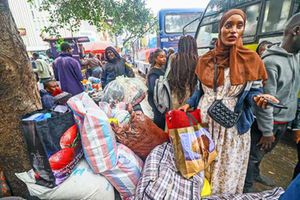State gets Sh8bn to boost learning
What you need to know:
- Speaking to the Nation on Wednesday, Mr Elyas Abdi, the lead technical officer at the Ministry of Education, said the funding will improve methods that teachers in lower primary school use in technical subjects.
- GPE is a multilateral partnership devoted to giving education to children in the world’s poorest nations.
The government has secured a grant of Sh7.96 billion for improving access to education for marginalised children and strengthening the education system as a whole.
Half of the money from the Global Partnership for Education (GPE) will go into giving refresher courses to teachers handling lower classes in primary schools.
The Sh3.15 billion, meant for strengthening early grade numeracy, will cover purchase of class one and two mathematics books for over 25,000 public primary schools in the country.
A part of it will also be invested in training teachers handling mathematics in these classes.
GPE is a multilateral partnership devoted to giving education to children in the world’s poorest nations.
“If we want to reach education for all goals, we need to ensure that adequate funding is available from domestic and external sources,” said Ms Alice Albright, GPE’s chief executive officer, upon approval of the grant last month in Washington, US.
TECHNICAL SUBJECTS
Speaking to the Nation on Wednesday, Mr Elyas Abdi, the lead technical officer at the Ministry of Education, said the funding will improve methods that teachers in lower primary school use in technical subjects.
“We will train class one and two mathematics teachers how to handle large classes in public schools.
“As you know, classes are too crowded nowadays, but pupils need to grasp mathematical concepts at an early stage,” Mr Abdi told the Nation in a phone interview.
The teachers will get on-the-job training and be supervised to see how they are teaching the young learners.
Teacher training colleges will also be required to improve how they train tutors to teach mathematics in lower classes.
The funding targets Mathematics because English and Kiswahili, which are the other core subjects, have already been funded by United States Agency for International Development (USAid).
The programme is also expected to improve quality of learning, particularly for marginalised children in rural and nomadic communities.
“The Ministry of Education will do a comprehensive data collection in these areas to determine how we can mitigate the situation,” said Mr Abdi.
This drive will provide data on school enrolment, dropout, class repetition and completion rates.
It will also reveal the number of teachers and shortages and track performance of candidates in national examination and transition rates.





